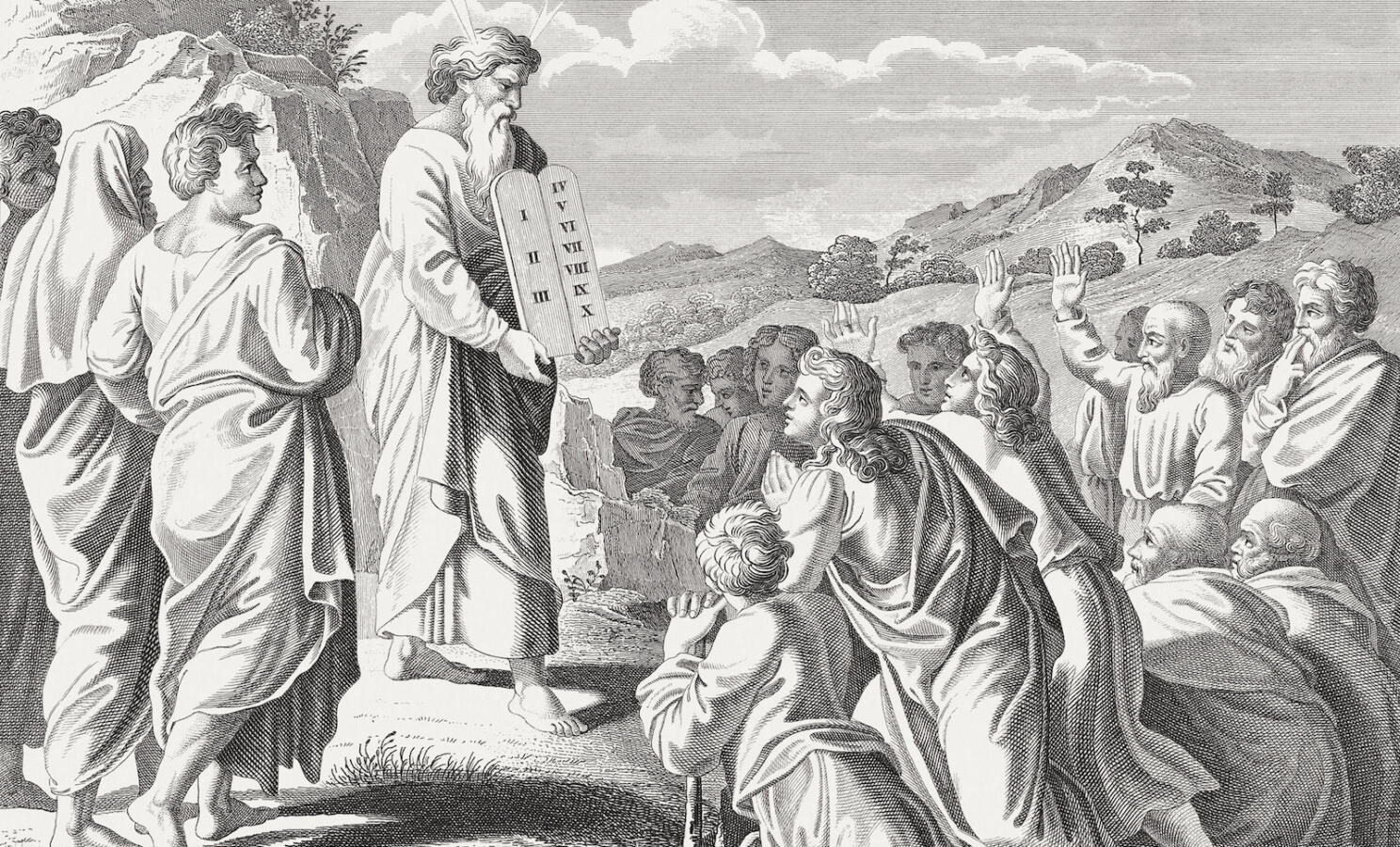Is it better to do something because one is obligated or because one chooses? One is usually not rewarded for following the law — for example, stopping at a red light. But one is viewed as praiseworthy when acting out of volition — for example, helping an elderly person across the street. It is precisely because one is not legally mandated to do something that the act is often considered meritorious.
The question of outward compulsion versus inner conviction also stands at the epicenter of the revelation at Sinai — and by extension, the entire Jewish covenant. It is also a central motif of the festival of Shavuot, which begins tonight.
Rabbinic engagement with this idea stems from an odd biblical expression. “We will do and we will hear,” the Israelites declare upon hearing the covenant they are making with God at Sinai. The Israelites seem to be agreeing to observe the commandments out of volition, before being commanded to do so.
The strangeness of this formulation evokes numerous rabbinic comments. In Tractate Kiddushin, Rabbi Haninah teaches: “Greater is the one who is commanded and acts than one who is not commanded and acts.” This teaching appears to counter the biblical verse, where the Israelites seem to say they will act without being commanded. Rabbi Haninah seems to be saying the opposite — that being commanded and acting is better than acting without being commanded. Stopping at a red light is better than helping an elderly person across the street.

Help us keep Jewish knowledge accessible to millions of people around the world.
Your donation to My Jewish Learning fuels endless journeys of Jewish discovery. With your help, My Jewish Learning can continue to provide nonstop opportunities for learning, connection and growth.
Trying to explain Rabbi Haninah’s comment, the Tosafot commentary offers the following: “It appears that the reason that it is greater to be commanded and act is that in such a state there is more worry and concern [that one will not perform their duty] from one who isn’t commanded at all.” Tosafot suggests that obligation naturally breeds rebellion. So if one is obligated to do something, the act is more meritorious precisely because one must fight the compulsion to rebel against it.
If so, then why didn’t the Israelites state that they would first be commanded and then fulfill the commandment by defeating their inclination to rebel? One answer offered by the sages is that at the moment of Sinai, the Israelites had no inclination to rebel. They were in such a sanctified state that their evil inclination temporarily left them. The Hasidic master Moshe Teitelbaum of Ujhely suggests that we can understand the Israelite response in this vein. In such a lofty state, being commanded was no longer greater than not being commanded because the advantage of being commanded is precisely in overcoming one’s inclination to rebel. Since that inclination wasn’t present, it was better to act from pure volition.
But if that’s the case, how are we to understand the event that followed Sinai and might be understood as its coda: the egregious act of rebellion that was the building of the Golden Calf? While the Israelites should have waited in great anticipation for Moses to return with the divine tablets, they instead rebelled and exhibited their suspicion that this was all a hoax, that Sinai was a trick, and they were now left to die in the desert. How could they have gone from such a state of sanctity at Sinai to such a state of rebelliousness?
Perhaps it was because the Israelites who received the Torah at Sinai were categorically different from the Israelites who built the calf. At Sinai, the Israelites were confronted by the full reality of God. There was thunder and lightning, the mountain covered in smoke, and the loud blast of a horn. There was no challenge of doubt and thus no inclination toward evil. But the Israelites waiting for Moses to return had no such tangible signs of God’s presence and the evil inclination that was absent at Sinai returned. And in their doubt, they erected a Golden Calf to defy God and replace Moses.
For us, then, who live with an invisible God together with an evil inclination, perhaps the more suitable model is not the elevated Israelites who stood at Sinai, but the ones forced to live with doubt. Our challenge is thus not to “do and then hear,” but the reverse — that is, to first take on the mantle of the commandments (“to hear”) and then to do, to struggle with our doubts in an attempt to fulfill the will of the Creator.
Being commanded is both a burden and a blessing. It is a burden because it places responsibility to act in response to being commanded on our shoulders. It is a blessing because it enables us to be fully human, with our doubts and our convictions, always negotiating between what we believe and what we don’t.
“We will do and we will hear” is thus not the aspiration, but the exception. According to Rabbi Haninah, it is a lesser form of fidelity to God. To approach Torah as fully human is the goal, even as we will invariably fail. In fact, precisely because we will invariably fail.
This article initially appeared in My Jewish Learning’s Shabbat newsletter Recharge on June 4, 2022. To sign up to receive Recharge each week in your inbox, click here.



